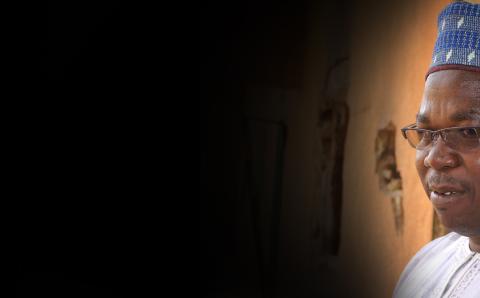The church councils of Rehoboth (N.M.) Christian Reformed Church and Zuni (N.M.) CRC denounced some of the conclusions in the report going to Synod 2016 from the Doctrine of Discovery Task Force.
In that report, the task force criticized the CRC’s ministry to Zuni and Navajo people, which was established more than a hundred years ago and included mission churches and Christian schools. Rehoboth Christian School was at one time a boarding school.
The two church councils sent communications to Synod 2016 as part of an overture from Classis Red Mesa (the regional group of churches) that asks synod to withhold adoption of the report until there is further study (Agenda for Synod 2016, pp. 579-587).
The Doctrine of Discovery (DOD) was the belief that North American lands were uninhabited until Europeans arrived and placed white Christians in a position of power over non-Christian peoples and lands.
The Rehoboth council agrees with the task force’s condemnation of the DOD but refutes that the CRC ever advocated that view and accuses the task force authors of being uncharitable. “[The authors] selected some of the ugliest moments of that past in order to make their accusations against these early missionaries stick,” the council wrote. “They assigned questionable motives to the missionaries which fit the story the task force desired to tell.” The council said the historical story told in the task force’s report is skewed, out of balance, and unfair.
In its report, the task force noted that the CRC “drinks downstream” from that history and “the effects of that corporate sin linger today.” The Rehoboth CRC council said that cuts both ways. “We enjoy the blessing of Native culture and live downstream from it,” the council wrote. “Native Christians also live downstream. They benefit from the message of saving light which the early missionaries, doctors, and teachers brought them. . . . Many Rehoboth Christian School students would give thanks for their Christian education.”
The Zuni CRC council echoed many of the same concerns. It asked how the writers of the report could speak on behalf of the Zuni CRC “when, to our knowledge, no one here was ever consulted prior to the writing of the report.”
It went on to state that the doctrines of Manifest Destiny and of Discovery were not doctrines of the CRC but rather political doctrines used to justify the westward expansion of the United States of America. “Was the thinking of the church tainted by these doctrines? Maybe,” the communication said.
In 2003, at the 100th anniversary celebrations of Rehoboth Christian School, a ceremony of apology and reconciliation was held. The task force calls for further confession, lamentation, and repentance, and acknowledgement of the CRC’s trespasses against Indigenous peoples generally and, specifically, against the Navajo and Zuni peoples of the U.S. Southwest. “The DOD report leaves us with a sense that public acknowledgments of wrongdoing will never end—it will never be enough,” the Zuni CRC council wrote.
Both churches expressed concern that the report leaves the impression that the Native people would have been better off without the missionaries. The Zuni church said. “When the early Christian Reformed missionaries came to the American Southwest, they found the Navajo and Zuni people living in abject poverty. We believe that they were moved with hearts of compassion and truly came to love the people God called them to serve.”
That was echoed by the Rehoboth council. “Mistakes were made as missionaries carried out the work, but the work itself was not a mistake! It was obedience to the Lord. Therefore, we ask synod to develop a balanced report which not only articulates the sins of the missionaries but also affirms the precious biblical value of mission.”
See also:
Synodical Committee Rejects Doctrine of Discovery, Criticizes CRC Ministry to Navajo
About the Author
Gayla Postma retired as news editor for The Banner in 2020.









